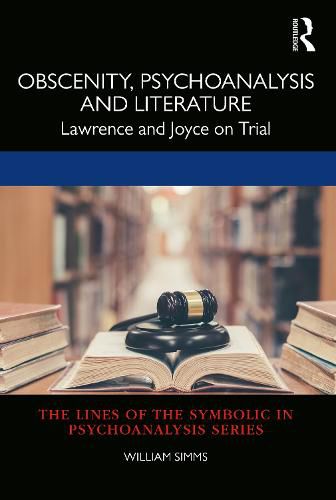Readings Newsletter
Become a Readings Member to make your shopping experience even easier.
Sign in or sign up for free!
You’re not far away from qualifying for FREE standard shipping within Australia
You’ve qualified for FREE standard shipping within Australia
The cart is loading…






Obscenity, Psychoanalysis and Literature offers a fascinating psychoanalytic reading of four landmark obscenity trials involving the texts of D. H. Lawrence and James Joyce. By tracing the legal histories of Lawrence and Joyce, from censorship to their eventual redemption and transformation into champions of sexual freedom, the book draws a narrative of changing legal, literary and cultural investments.
The book examines the four trials of these authors in detail to show how the literary text can function as a symbol of both life and death and the political uses of figuring them as such. Taking a psychoanalytic perspective, we can see how this narrative of sexual repression to sexual liberation may itself be an emergent form of the superego imperative to enjoy and consume. Through close readings of trial transcripts and archival documents, this book helps elucidate the fantasies operating throughout the trials: the unquestioned assumptions of the nature of sexuality, gender, drugs and truth. It demonstrates with clarity how, through its attempt to suppress the sexual, the law confronts its own nature as language and in doing so troubles the distinctions between law, literature and desire that it usually wishes to protect.
Offering a uniquely psychoanalytic account of the obscenity trials of these authors, this text will be of great interest to scholars from across the fields of psychoanalysis, law and literature.
$9.00 standard shipping within Australia
FREE standard shipping within Australia for orders over $100.00
Express & International shipping calculated at checkout
Obscenity, Psychoanalysis and Literature offers a fascinating psychoanalytic reading of four landmark obscenity trials involving the texts of D. H. Lawrence and James Joyce. By tracing the legal histories of Lawrence and Joyce, from censorship to their eventual redemption and transformation into champions of sexual freedom, the book draws a narrative of changing legal, literary and cultural investments.
The book examines the four trials of these authors in detail to show how the literary text can function as a symbol of both life and death and the political uses of figuring them as such. Taking a psychoanalytic perspective, we can see how this narrative of sexual repression to sexual liberation may itself be an emergent form of the superego imperative to enjoy and consume. Through close readings of trial transcripts and archival documents, this book helps elucidate the fantasies operating throughout the trials: the unquestioned assumptions of the nature of sexuality, gender, drugs and truth. It demonstrates with clarity how, through its attempt to suppress the sexual, the law confronts its own nature as language and in doing so troubles the distinctions between law, literature and desire that it usually wishes to protect.
Offering a uniquely psychoanalytic account of the obscenity trials of these authors, this text will be of great interest to scholars from across the fields of psychoanalysis, law and literature.